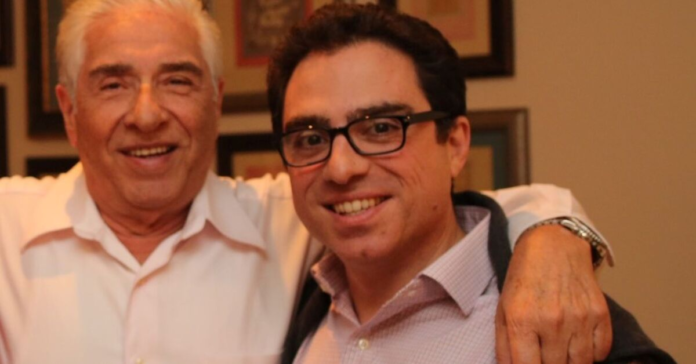January 17, 2023
WASHINGTON — An American prisoner’s hunger strike in Iran has renewed pressure on the Biden administration to cut a deal with Tehran that would free several US citizens held in Iranian custody.
Siamak Namazi, currently the longest-held American prisoner in Iran, embarked Monday on a seven-day hunger strike — one day to mark each year he’s spent behind bars. Namazi is detained in the notorious Evin Prison, where his family says he has endured long stretches of solitary confinement and torture.
Namazi, a businessman arrested in 2015 and handed a 10-year prison sentence for “colluding with foreign countries,” was the only American not returned home as part of a January 2016 prisoner exchange under the Obama administration that occurred the same day the Iranian nuclear deal took effect. Namazi was also left out of two subsequent prisoner releases negotiated by the Trump administration.
The Biden administration says bringing wrongfully detained US citizens home from Iran is a top priority. In a letter he penned from prison, Namazi called for President Joe Biden to make good on that pledge, including by meeting with the families of the imprisoned Americans.
“I now know that I shouldn’t get my hopes up when senior US officials say that rescuing the hostages in Iran is their highest priority. Such well-intentioned statements can be repeated year after year without tangible results,” Namazi said in the letter shared by his lawyer, Jared Genser.
In addition to Namazi, Iran has detained Iranian-Americans Emad Shargi, a businessman, and Morad Tahbaz, a conservationist who also holds British citizenship, on espionage charges that their families dismiss as baseless. After more than six years in Iranian custody, Namazi’s father, Baquer Namazi, was freed from house arrest in October so that he could receive urgent medical treatment abroad.
Namazi’s hunger strike comes nearly two years after the Biden administration began indirect talks with Tehran over a possible prisoner exchange. Because Iran refuses to negotiate directly with the United States, the two sides have relied on interlocutors including Oman and Switzerland.
Asked if those talks were ongoing, a State Department spokesperson told Al-Monitor, “We have ways of communicating with Iran on issues of concern, such as on the issue of releasing American citizens wrongfully detained in Iran. Those channels remain open, but we’re not going to detail them.”
The Iranians claim they are ready to strike a prisoner deal, reportedly in exchange for the release of billions of dollars of Iranian assets that are frozen abroad under US sanctions.
“An agreement on prisoner exchanges is very close,” a spokesperson for the Iranian Mission to the United Nations told Al-Monitor on Tuesday. It “has the potential to happen if the US government has the political will.”
Ali Vaez, the International Crisis Group’s Iran Project Director, said that the framework for a prisoner release has been negotiated, but the American side is reluctant to pay the political cost.
“Any kind of deal that would financially benefit a regime that is killing its own people on the streets and is indirectly responsible for killing Ukrainians is going to be highly unpopular in the United States,” Vaez said.
Indirect talks aimed at restoring the 2015 nuclear deal, which would grant Iran sanctions relief in exchange for curbs on its nuclear program, are deadlocked. More than a year of on-off negotiations broke down in August after Iran proposed what the United States described as extraneous demands.
“The Biden administration was hoping that it would wrap a prisoner deal into the restoration of the nuclear deal in order to limit the cost,” Vaez said. “But now that it’s almost clear that’s not going to happen, [the US] might be more willing to move ahead and do this deal as a standalone.”
Further dimming prospects for a nuclear agreement is Iran’s violent crackdown on the anti-government protests that have engulfed the country. According to Oslo-based group Iran Human Rights, at least 481 people, including 64 children and 35 women, have been killed by security forces since protests erupted over the Sept. 16 death in custody of 22-year-old Mahsa Amini. The White House says its focus is on supporting the protesters, rather than reviving the nuclear deal.
With the nuclear negotiations now at a standstill, Siamak Namazi’s brother, Babak Namazi, told Al-Monitor he hopes the Biden administration will push for the prisoners’ release “on a humanitarian basis.”
“The administration itself from day one has stated the release of American hostages is not linked to the nuclear deal, and we need to see that turn to reality,” Namazi said.



